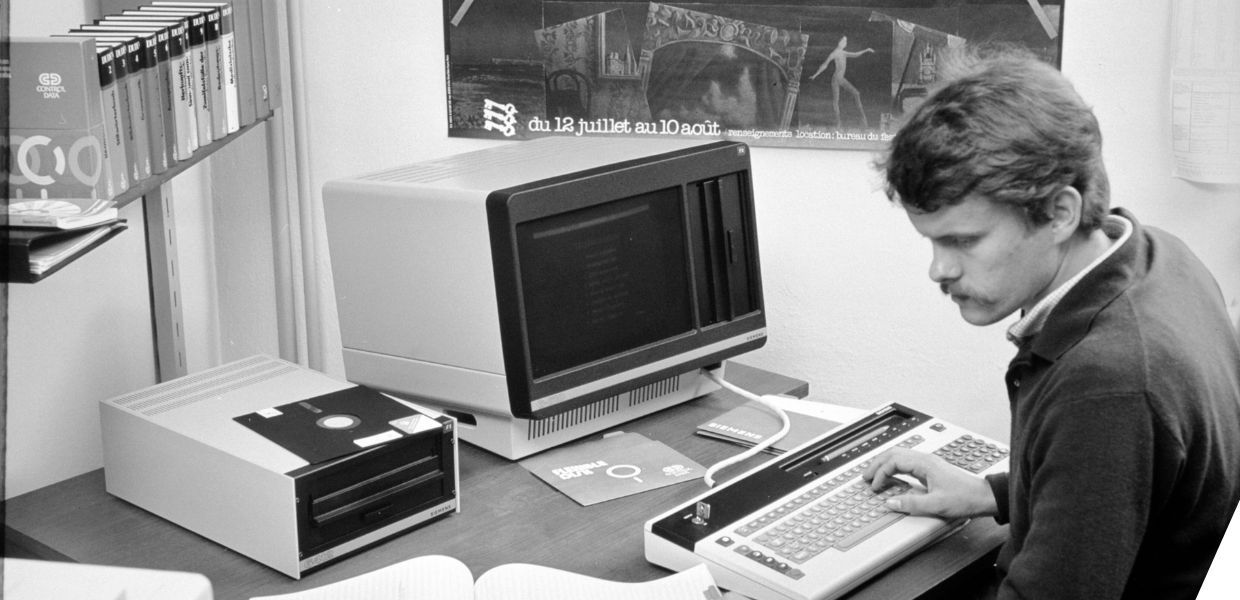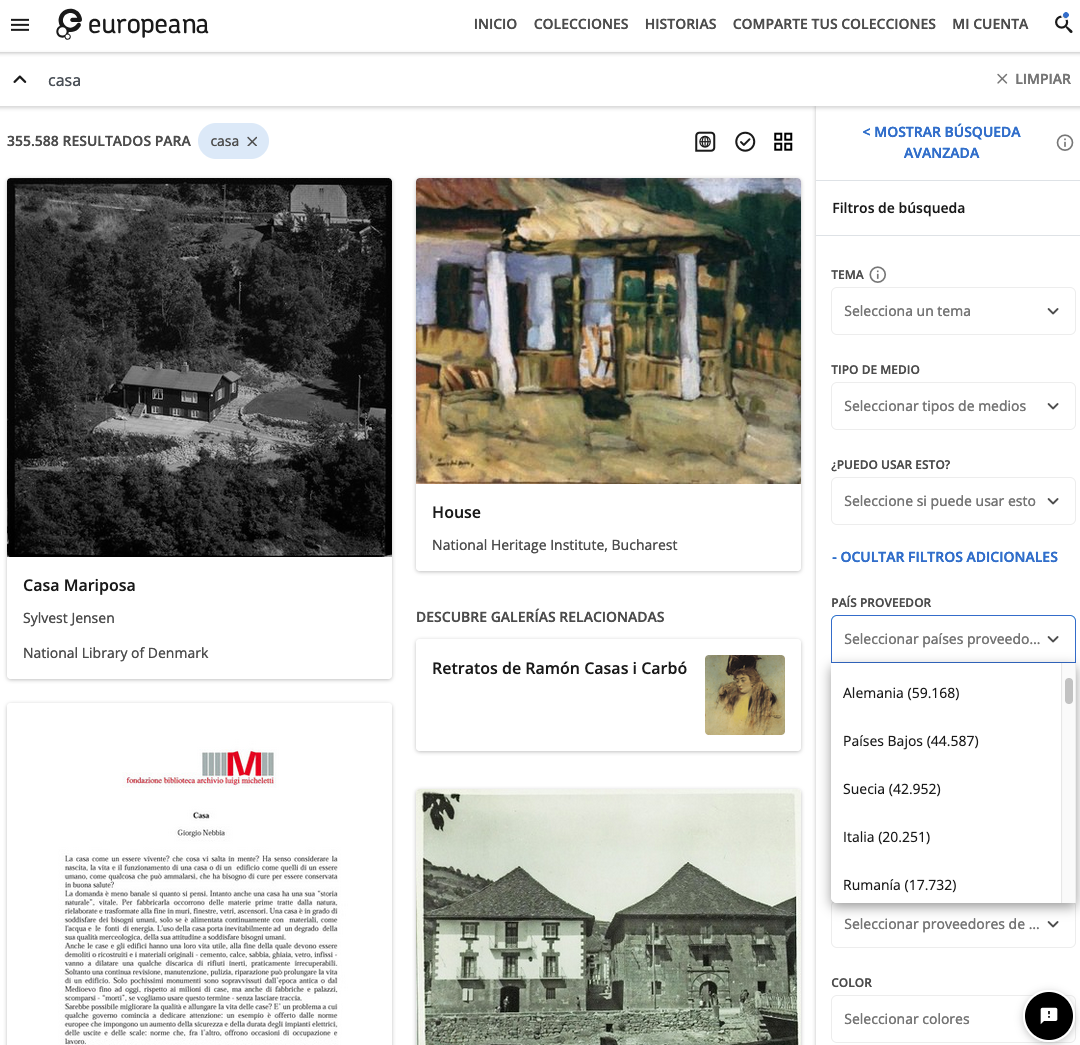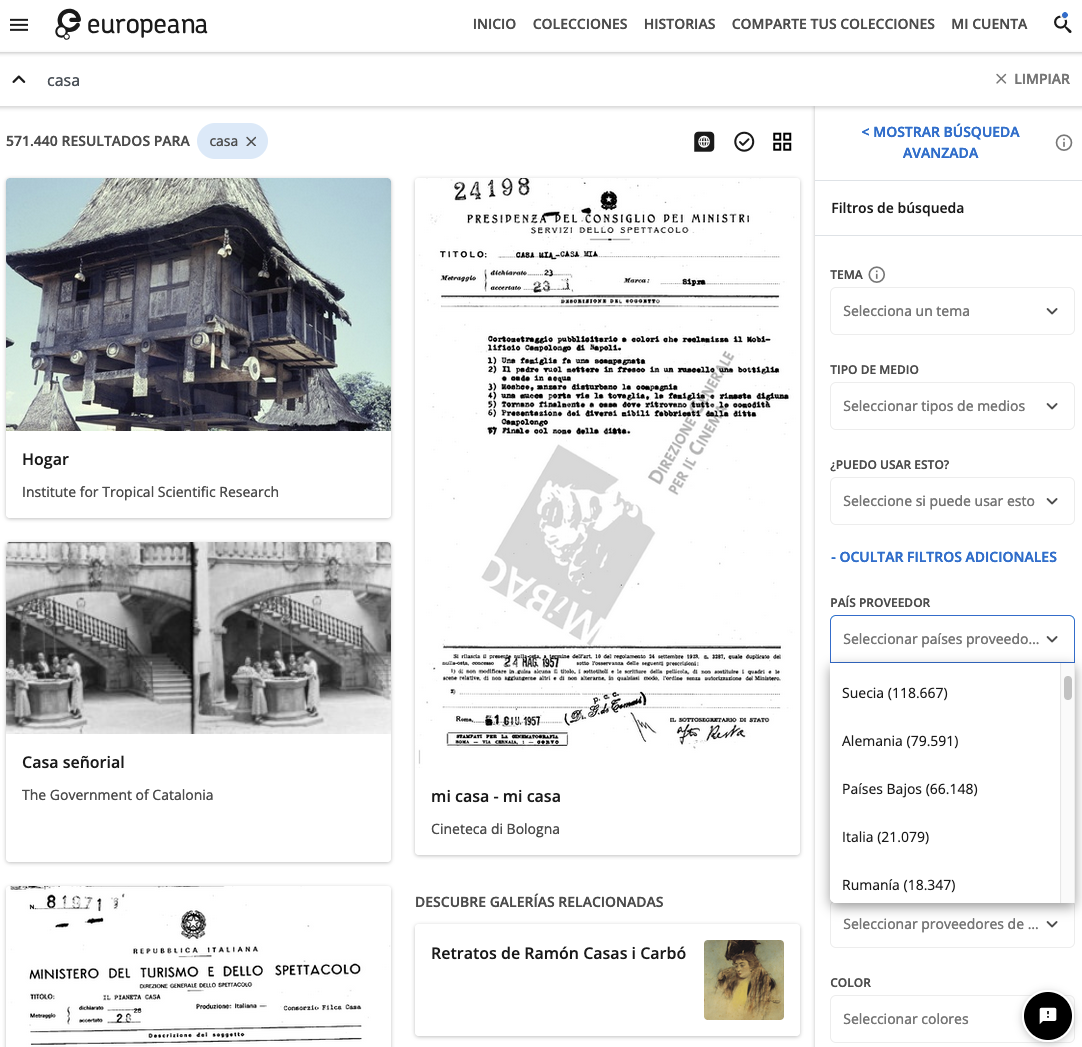About Europeana.eu
Europeana.eu is a one stop shop to discover Europe’s digital cultural heritage. It provides cultural heritage professionals, researchers, teachers and enthusiasts with access to over 60 million items from over 3,500 data providers across Europe. The website showcases art, books, films and music on a wide range of themes including newspapers, archaeology, fashion, science, sport and much more.
The content found on Europeana.eu is reused in increasingly creative ways to inspire and inform fresh perspectives and open conversations about our history and culture; whether it’s teachers developing resources for lessons, developers using our open-source API to make games, or culture lovers creating gifs and telling stories.
About multilingual search
Website visitors have growing needs and expectations for accessing material in alternative languages, and this is especially true for Europeana.eu, which gives access to data from over 3,500 providers from 45 countries. In terms of search experience, this means that the results of a query entered in one language should give access to collections that have been described with those query terms in other languages.
Our approach is based on using English as a ‘pivot language’: users’ queries are automatically translated to English, and compared with translations of objects’ metadata in the same language (some automatically produced, some resulting from multilingual expert vocabularies used in cultural heritage) to give users a wider range of results.
After an experimentation phase to ensure that this process did not result in too much ‘noise’, this feature was deployed for the Spanish language version of Europeana.eu. If someone searches ‘house’ in English, or ‘casa’ in Spanish, they receive relevant results regardless of the language of the metadata.






